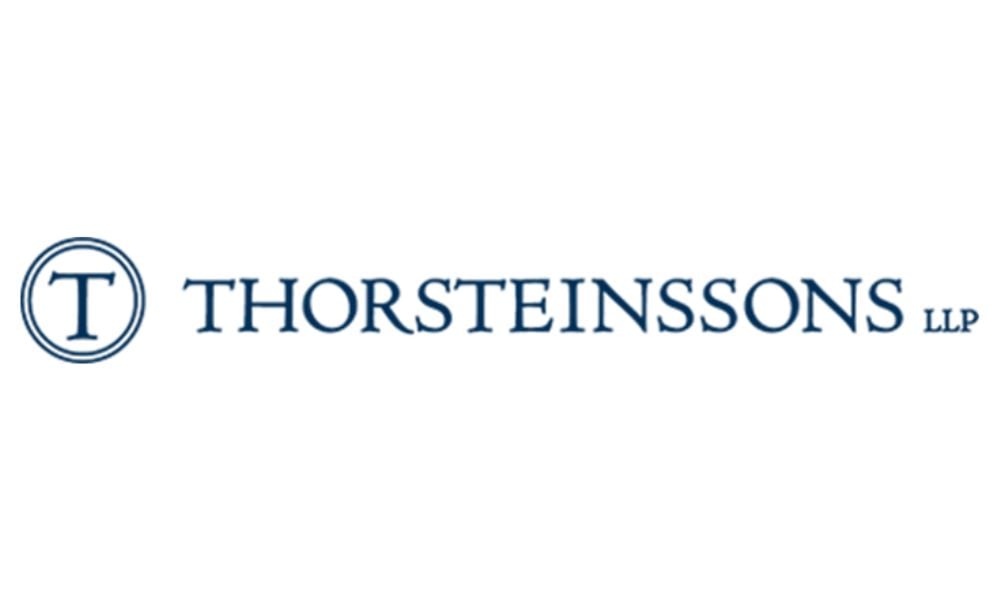Budget 2024 proposed several amendments to the information gathering provisions in the Income Tax Act (the “Act”) intended to, as stated in the Supplementary Information regarding tax measures, “enhance the efficiency and effectiveness of tax audits and facilitate the collection of tax revenues on a timelier basis”. A summary of those amendments is in our prior blog post. Those amendments were included in the draft legislation released in August 2024, slightly modified from the version released with the Budget.
Due to the lack of clarity around how the CRA’s new enforcement powers will be used, the seriousness of the potential consequences for taxpayers, and the absence of safeguards to protect taxpayers’ rights, the amendments could negatively impact the efficiency of the audit process by making it more adversarial.
If enacted, the following four changes will bring significant adverse consequences to taxpayers who do not respond to audit requirements to the satisfaction of the Canada Revenue Agency (“CRA”):
- the CRA’s new power to require that questions be answered or documents be provided under oath or affidavit (proposed section 231.41);
- the CRA’s new power to unilaterally issue a notice of non-compliance, which carries with it significant penalties (proposed section 231.9);
- the imposition of an automatic penalty when a compliance order is issued (proposed subsection 231.7(6)); and
- the suspension of the “normal reassessment period” in an extremely broad range of circumstances during the audit (proposed section 231.8).
In this post, I will highlight how the proposed expansion of the CRA’s audit powers will affect taxpayers and their advisors and unnecessarily make audits more adversarial.
Proposed section 231.41: Answering CRA questions under oath or affirmation
What’s new: Subsection 231.1(1) of the Act was amended in 2022 to allow the CRA to compel a taxpayer and “any person” to attend an oral interview. Proposed section 231.41 would enable the CRA to require that answers be given under oath or affirmation or by affidavit.
Pitfalls: Answering questions, particularly during a CRA oral interview, under oath or affirmation effectively mimics an examination for discovery in the Tax Court of Canada or an inquiry under existing section 231.4 of the Act. Unlike the latter two procedures, however, section 231.41 contains no explicit procedural rules or safeguards.
A person compelled to answer questions at an examination for discovery or inquiry has the right to counsel, the right to a transcript, and the right to seek rulings on procedural matters from the Court or, in the case of an inquiry, a Court-appointed hearing officer. The Tax Court of Canada Rules (General Procedure), applicable to examinations for discovery, and associated jurisprudence set out numerous safeguards to protect the examined party from unfair questioning. For instance, a party can object to a question if it is improper or if the information sought is protected by solicitor-client privilege.
Proposed section 231.41, however, contains no explicit safeguards or procedural rules. While a taxpayer’s right to counsel, to be provided a transcript, and to object to answering improper questions would presumably apply, there is no guarantee the CRA auditor would agree given that section 231.41 is silent on these matters. There is thus a risk that not responding to the CRA’s questions during an oral interview, even for a legitimate reason, could lead to the imposition of a penalty under the new non-compliance regime, discussed in more detail below.
Takeaways: In the absence of clear and explicit safeguards to protect the taxpayer’s rights, taxpayers and their representatives may need to be far more cautious, potentially making audits more adversarial, expensive, and time consuming, and resulting in more litigation. Further, compelling a taxpayer to give evidence under oath in circumstances where that evidence may be subsequently used as a basis for criminal prosecution could give rise to constitutional issues.
Proposed section 231.9: Notice of non-compliance
What’s new: Currently, taxpayers who fail to comply with audit requirements could face charges for an offence under s. 238 of the Act but face no other administrative penalties. Under proposed section 231.9, the CRA can, at any time, send a notice of non-compliance (“NONC”) to a taxpayer if the auditor determines that the taxpayer has not complied in full or in part with audit requirements.
The taxpayer may dispute the NONC within 90 days of the date that it was sent or served, and the CRA must then issue a decision confirming, varying, or vacating the NONC within 180 days. The NONC will only be vacated if the CRA finds it was “unreasonable to issue” or if the taxpayer demonstrates they had, prior to its issuance, done “everything reasonably necessary to comply” with the requirement. If the NONC is confirmed, the taxpayer may apply to the Federal Court for a review of the decision.
A taxpayer to whom a NONC is issued is subject to a penalty of $50 per day to a maximum of $25,000 while the NONC is “outstanding”. If the NONC is vacated by the CRA or the Court, it is deemed to have never been outstanding, so the penalty will not apply. The normal reassessment period stops running while the NONC is outstanding or being disputed in Federal Court.
Pitfalls: Proposed section 231.9 imposes no limitation on the number of NONCs that can be issued in respect of the same audit. This means that multiple NONCs, with separate cumulative penalties, could potentially be issued in respect of a single audit in which multiple requirements have been issued. The severe consequences associated with a finding of non-compliance could discourage taxpayers from insisting on their right not to answer improper questions.
Takeaways: Because it is up to the CRA auditor to determine whether there has been full compliance with an audit requirement, taxpayers and their representatives should consider clarifying what the CRA auditor expects and, if appropriate, conveying information about the taxpayer’s reasonable efforts to comply. Communications of this nature should usually be reduced to writing as they may form part of the evidentiary record in a potential NONC challenge at the CRA level or in Federal Court.
Proposed subsection 231.7(6): penalty when compliance order issued
What’s new: An application for a compliance order is a Federal Court proceeding initiated by the Minister of National Revenue (the “Minister”) when she considers that a taxpayer has failed to comply with a requirement under section 231.1 or 231.2 of the Act. On an application for a compliance order, the Court has the power to order the taxpayer to provide information and documents and pay legal costs. The Court can also impose sanctions for contempt of court if the order is not complied with. Under proposed subsection 231.7(6), taxpayers will, in addition to those consequences, be subject to an automatic penalty equal to 10% of the aggregate amount of tax payable for each taxation year to which the compliance order relates. There is an exception from the application of the penalty if the tax owing in respect of a particular taxation year does not exceed $50,000.
Pitfalls: The 10% penalty appears to be applicable regardless of the relevance of the information or documents obtained through the compliance order to the audit adjustments finally made by the CRA. In fact, the penalty could apply even if the audit results in no adjustment and no reassessment and even in cases where the taxpayer had a meritorious dispute about the appropriateness of the requirement.
Takeaways: Like the decision to issue a NONC, the CRA’s determination of whether an application for a compliance order is necessary will depend on the CRA auditor’s interpretation of whether the taxpayer fully complied with the requirement and whether the requirement was proper. A concern is that applications for compliance orders could become commonplace and be used as a means for imposing hefty penalties even in cases where the taxpayer complied with the vast majority of the requirement and/or had a valid reason for objecting to certain questions. Although not expressly provided for, taxpayers arguably may be able to avoid the penalty by establishing a due-diligence defence.
Proposed section 231.8: suspension of the normal reassessment period
What’s new: Under proposed section 231.8, the “normal reassessment period” (i.e., the period in which the CRA may assess without relying on a narrow set of statutory exceptions) is paused:
- where a taxpayer or a person not dealing at arm’s length with the taxpayer applies for judicial review of a requirement under any of sections 231.1, 231.2, or 231.6 of the Act, during the entire time that the application is outstanding;
- where the Minister commences an application in Federal Court to obtain a compliance order under section 231.7 from the taxpayer or a person not dealing at arm’s length with the taxpayer, during the entire time that the application is outstanding; and
- where a NONC is issued to the taxpayer or a person not dealing at arm’s length with the taxpayer, during the entire time that the NONC is “outstanding” or, where the NONC is vacated by a judge, from the day the judicial review was initiated until the day it is finally decided.
Pitfalls: Not only is the normal reassessment period suspended in situations where the taxpayer may have good reason to dispute the appropriateness of the requirement, it is also suspended in situations out of the taxpayer’s control, such as where the requirement was made not to the taxpayer but to a person not dealing at arm’s length with the taxpayer. Notably, the normal reassessment period seems to be suspended even where the requirement, application for a compliance order, or NONC issued to the non-arm’s-length person has no nexus to the taxpayer’s audit.
Takeaways: Taxpayers and their advisors must be alert to situations where there is a potential for actions involving non-arm’s-length persons to extend the normal reassessment period of the taxpayer and vice versa. Careful consideration must be given to whether it is in the best interests of all the involved parties to cooperate, such that the normal reassessment periods of all non-arm’s-length persons do not get unreasonably prolonged.
***

Vivian Esper is a partner working out of the Vancouver office of Thorsteinssons LLP.
Vivian’s practice focuses on tax dispute resolution with the Canada Revenue Agency and Tax Court of Canada. Her practice also includes tax planning involving individuals, trusts and corporations. Prior to moving to Canada, Vivian practiced for 7 years as a tax litigation lawyer in one of the most prestigious law firms in Sao Paulo/Brazil.
Vivian successfully completed her Masters at Law – Common Law (LL.M.C.L.) at the University of British Columbia and received her Accreditation Certificate by the Federation of Law Societies of Canada in 2016. She was called to the Ontario bar in 2017 and practiced as a tax lawyer in a boutique tax law firm until 2018 when she joined the firm’s Vancouver office.





